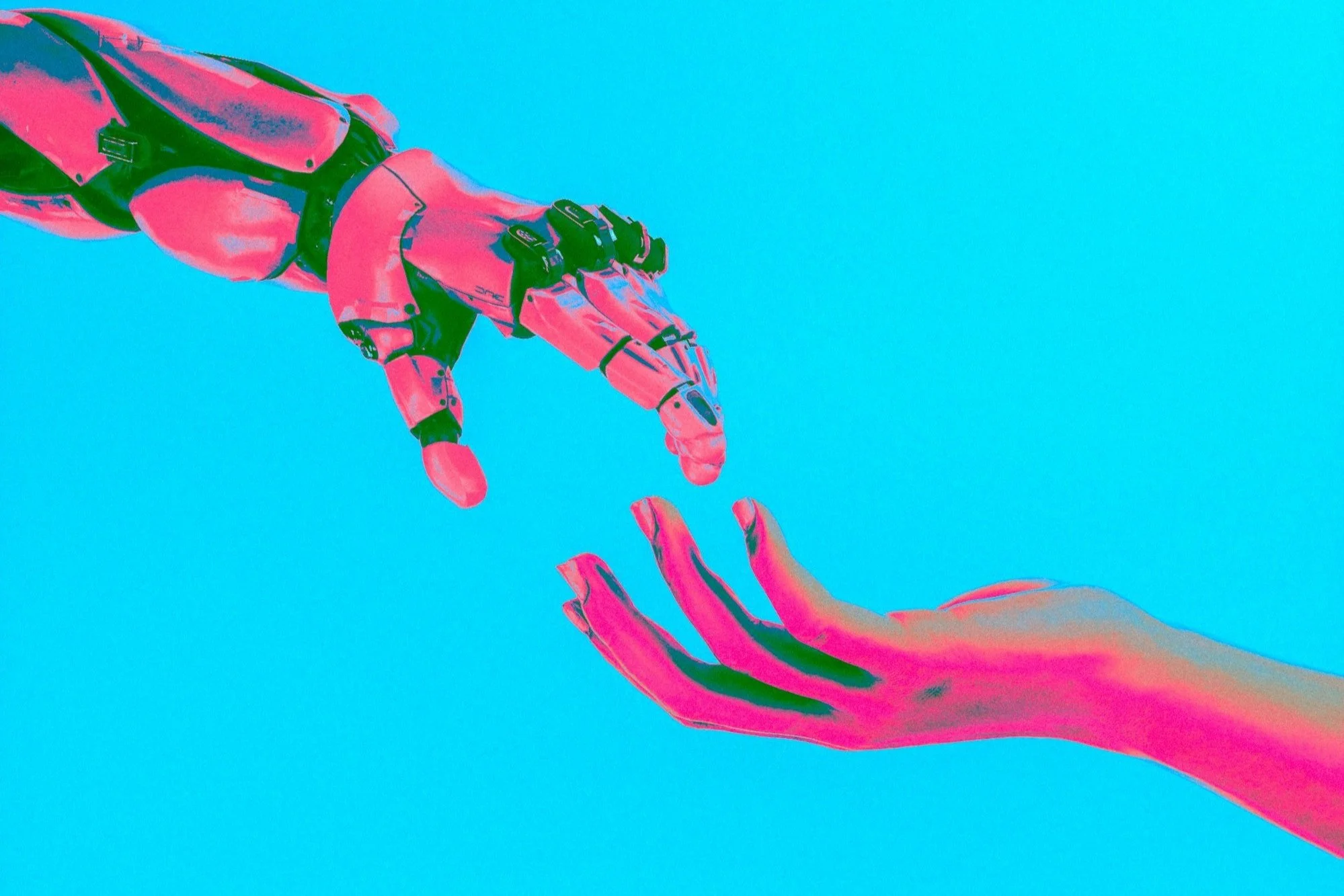When Can AI Lend a Hand with your Mental Health? (and When Can't It?)
Let's talk about something that's popping up everywhere: Artificial Intelligence, or AI. It's no longer just for sci-fi movies; it's making its way into our daily lives. More and more people are turning to AI for a quick chat, some guided exercises, or just a little emotional pick-me-up.
But here's the big question: Is this a good thing? And can a robot really help with something as human as your feelings?
The short answer is: It's complicated, but potentially very useful! Especially if you're already working with a human therapist.
Why Are People Using AI for Support?
Think about it. Therapy sessions usually happen once a week, maybe every other week, or once a month. What happens in between? Life, that's what! And life doesn't always wait for your next appointment to throw you a curveball. This is where AI-powered tools can really shine:
Always There, 24/7: Got a sudden wave of anxiety at 2 AM? Feeling overwhelmed after a tough work call at 5 PM? Your AI buddy is just a tap away. This on-demand support can be a huge comfort when you need to vent or process something right now.
A Mostly Judgment-Free Zone: Sometimes it's easier to spill your guts to something that doesn't have a face, a history, or personal opinions. AI chatbots can offer a truly non-judgmental space to explore thoughts and feelings that might feel too embarrassing or silly to say out loud to a person at first.
Tracking & Insights: Many AI mental health apps include mood trackers, journaling features, or ways to log your thoughts. Over time, they can help you spot patterns in your moods or triggers, which can be super valuable information to bring back to your actual therapist. It's like having a detailed diary that automatically highlights themes for you.
Where AI Hits Its Limits
Now, before you go cancelling your therapy appointments, let's be super clear: AI is NOT a replacement for a qualified human therapist. And here's why:
Lack of True Empathy and Nuance: AI doesn't feel. It processes information and generates responses based on patterns in data. It can simulate empathy beautifully, but it doesn't truly understand your unique life story, your cultural background, your non-verbal cues, or the subtle complexities of human emotions. A human therapist brings years of training, intuition, and lived experience to the table that an algorithm simply can't replicate.
No Therapeutic Relationship: The core of effective therapy is the human connection and the therapeutic relationship you build with your therapist. This bond of trust, safety, and understanding is what allows for deep healing and genuine personal growth. AI can't form that kind of relationship.
Crisis Situations are a No-Go: If you're in a crisis, experiencing severe mental health symptoms, or having thoughts of self-harm, AI tools are NOT equipped to handle that. They can sometimes give inappropriate or even harmful advice in these situations.
No Diagnosis or Personalized Treatment Plans: AI can't diagnose mental health conditions, nor can it create truly personalized, evolving treatment plans like a licensed professional can. Your therapist considers your entire context, performs in-depth assessments, and adjusts their approach based on your unique needs and progress.
The Solution: AI as Your "Between-Sessions" Support
Think of AI as a valuable supplement to your work with a human therapist, not a substitute.
Imagine this: You're learning about managing anxiety in therapy. Between sessions, you feel a panic attack coming on. Instead of feeling isolated, you can quickly open your AI app. It might guide you through a breathing exercise, help you challenge negative thoughts with prompts, or remind you of a coping strategy your therapist discussed.
It's about having an extra tool in your self-care kit, a supportive voice that can offer immediate, practical assistance.
Your human therapist remains the captain of your mental health journey, providing the deep understanding, personalized guidance, and authentic connection that only another human can.
Are you looking for a real life in-person therapist for sessions in Okotoks, Alberta or maybe online sessions for residents of Alberta, BC, Saskatchewan, Ontario, and the Yukon? The Team of therapists at Kindred Roots Therapy are here for you. Contact our Client Care Coordinator to find the perfect match therapist for you.

